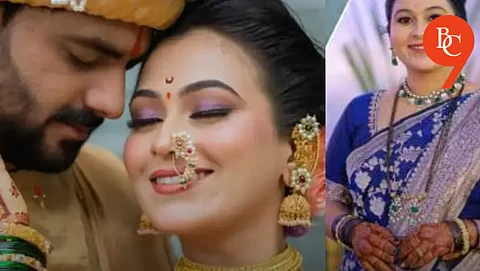

The sensational Vaishnavi Hagawane dowry death case took another dramatic turn this week as defense lawyers revealed in court the identity of a person with whom Vaishnavi was frequently chatting before her tragic death. The disclosure, accompanied by a trove of chat records, has introduced a new layer of complexity to an already high-profile and emotionally charged trial.
Vaishnavi Hagawane, daughter-in-law of former NCP leader Rajendra Hagawane, was found dead at her in-laws’ home earlier this month. Her death, initially ruled a suicide, led to the arrest of her husband and in-laws on charges of dowry harassment and abetment to suicide. The case has gripped Maharashtra, with daily developments making headlines and sparking debates on women’s rights and domestic abuse.
During the latest session in the Pune Sessions Court, the defense team for the accused produced chat transcripts from Vaishnavi’s mobile phone. They claimed that Vaishnavi was in regular contact with a person outside her marital family, and that these conversations were “intense and personal in nature.”
The defense named the individual in court (identity withheld for privacy), stating that the chats covered a range of topics, from daily frustrations to emotional support. According to the defense, these exchanges could offer alternative explanations for Vaishnavi’s state of mind leading up to her death.
The defense is using this revelation to challenge the prosecution’s narrative of sustained dowry harassment as the sole cause of Vaishnavi’s distress. By introducing a new figure into the case, the defense aims to:
Suggest that Vaishnavi’s emotional turmoil may have had multiple sources.
Cast doubt on the direct culpability of the accused in her death.
Argue for a broader investigation into Vaishnavi’s personal life and relationships.
Legal experts caution, however, that while such evidence may complicate the prosecution’s case, it does not automatically absolve the accused of responsibility for any harassment or abuse.
The prosecution has strongly objected to the introduction of chat evidence, calling it an attempt to deflect attention from the core issue of dowry-related cruelty. Vaishnavi’s family has expressed outrage, stating that the defense is trying to malign her character and distract from the real injustice.
Women’s rights activists have also condemned the move, warning against victim-blaming and emphasizing that personal relationships do not justify or excuse domestic violence.
The court has admitted the chat transcripts as evidence and scheduled further hearings to examine their relevance and authenticity. The case is now expected to delve deeper into Vaishnavi’s digital life, with both sides preparing to call expert witnesses and forensic specialists.
